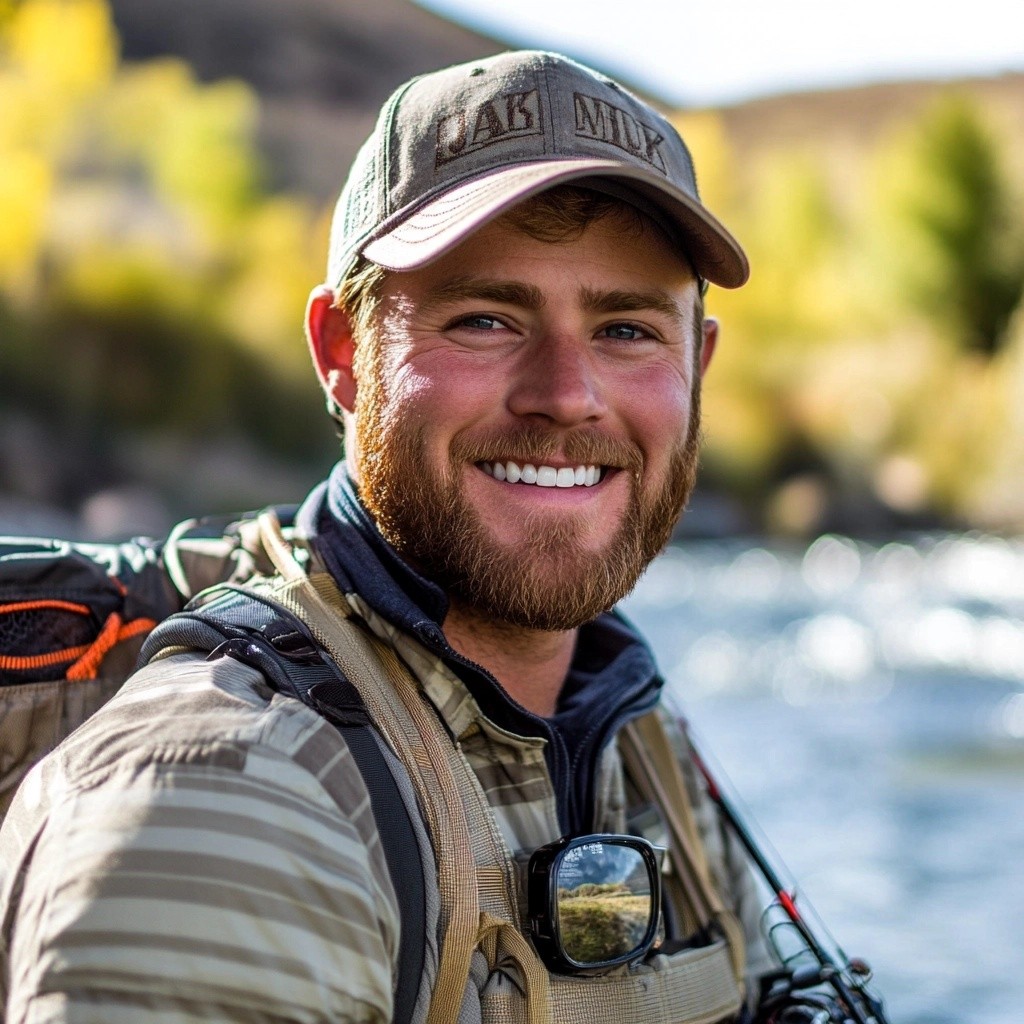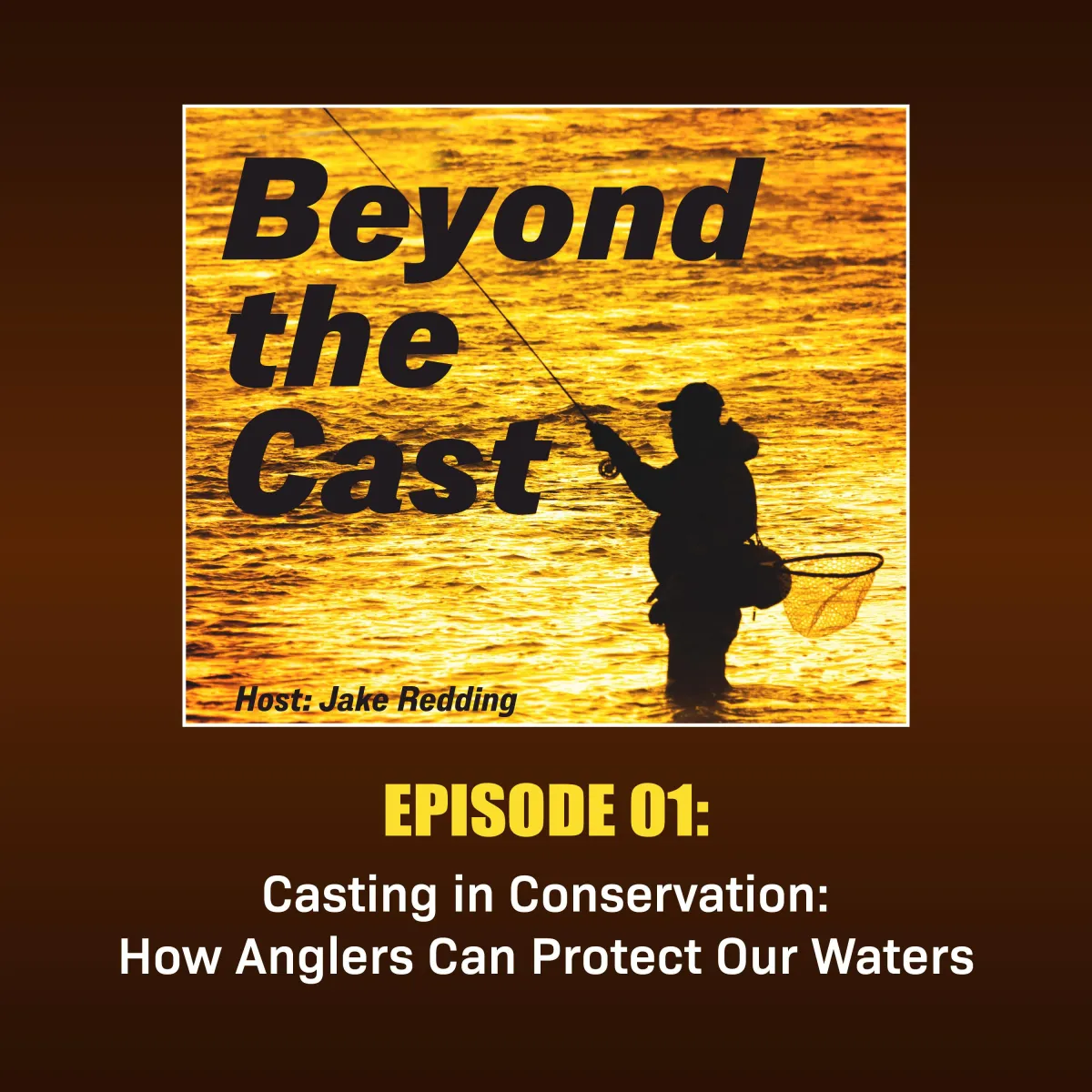
ATTENTION: Fly Fishing EnTusiasts
Cast Beyond the Ordinary with
Fly Fishing Alliance
Unlock expert tips, explore prime locations, and gear up for your next adventure.
MEET Your Host
Hey, I'm Jake!
Jake Redding is a passionate fly angler with over a decade of experience in the field. Starting as a beginner at the age of 25, Jake quickly fell in love with the art of fly fishing, dedicating himself to mastering various techniques and strategies. He has fished some of the most renowned rivers and lakes across the country, from the pristine waters of Montana to the challenging streams of the East Coast.
In addition to his fishing expertise, Jake is a skilled educator and communicator. He has hosted fly fishing workshops, contributed articles to fishing magazines, and led local fly fishing clubs, helping others to grow their passion for the sport. With a keen understanding of both the technical and recreational aspects of fly fishing, Jake aims to bridge the gap between beginners and experienced anglers through insightful discussions and practical advice.

Blog "Catch of the Day"

Casting in Conservation: How Anglers Can Protect Our Waters
Welcome to Beyond the Cast, the podcast where fly fishing meets adventure, connection, and growth.
I'm your host, Jake Redding, a fly angler who's passionate about sharing tips, stories, and a love for the water.
Whether you're here to master your casting technique, explore stunning fishing destinations, or learn how to fish sustainably, you're in the right place.
So grab your rod, reel, and a sense of curiosity.
It's time to dive into the world of fly fishing, like never before.
Welcome to the very first episode of Beyond the Cast, where we explore the numerous facets of fly fishing with a narrative twist.
I'm your host, Jake Redding, and today we're delving into a subject that strikes a chord with every angler out there, conservation.
Fly fishing is more than a sport.
It's a deep connection with nature.
And as we spend time on rivers, lakes, and streams, we have an opportunity and responsibility to protect these vital ecosystems.
In this episode, we'll explore the impact fishing practices have on these backgrounds, and discuss actionable steps each of us can take to minimize our ecological footprint.
First, let's talk about why conservation matters in the realm of fly fishing.
For many of us, fly fishing is not just a hobby, it's an integral part of our lives.
The thrill of the catch, the peace of the surroundings, it all culminates in a unique experience that we cherish.
However, the water bodies that facilitate this joy are facing increasing threats from overfishing, pollution, and climate change.
As anglers, understanding our role in this ecosystem is paramount.
Conservation isn't just about adhering to regulations, but fostering a mindset of respect and stewardship.
It's about ensuring that not just we, but future generations have the opportunity to enjoy pristine waters and vibrant fish communities.
Let's dive deeper into the impact of fishing practices on freshwater environments.
Sustainable fishing practices are crucial to maintaining the balance within aquatic ecosystems.
Overfishing not only reduces fish populations, but can also diminish biodiversity and alter the structure of aquatic food webs.
This can lead to a cascading effect, impacting everything from plant life in the water to the birds and mammals that rely on fish as a food source.
We are part of an intricate web of life, and our actions on the water can have significant effects up and down the line.
One technique that has gained traction among conscientious anglers is catch and release.
But what does this involve?
At its core, catch and release is about allowing fish to return to their natural setting unharmed after capture.
This practice not only ensures the survival of individual fish, but also helps maintain population levels.
Proper catch and release techniques require attention to detail, such as using barbless hooks, minimizing handling time, and gently releasing fish back into the water.
By practicing catch and release, we contribute to sustaining fish populations while continuing to enjoy the sport we love.
Another pivotal aspect of conservation is observing local fishing regulations.
These rules are not arbitrary.
They are informed by scientific research and designed to protect fish populations and habitats.
Regulations may include seasonal closures, size and bag limits, and specific gear restrictions.
Understanding and adhering to these laws is a straightforward way we can contribute to conservation efforts.
They may seem restrictive at times, but they are in place to ensure that the ecosystems we cherish remain healthy and resilient.
Minimizing our environmental footprint while fishing goes beyond following rules and releasing catches.
It's about respecting the entirety of the ecosystem.
Simple practices like ensuring we dispose of waste properly, avoiding sensitive areas, and using biodegradable products can make a significant difference.
Small actions, when compounded together, result in a larger impact.
Consider using eco-friendly gear and pack out what you pack in.
These habits not only preserve the environment, but promote a culture of responsibility and care.
Let's turn our attention to successful conservation initiatives that anglers and fishing communities have spearheaded.
Around the world, there are numerous examples of anglers taking conservation into their own hands.
From river cleanups to habitat restoration projects, these grassroots efforts demonstrate the power of community in conservation.
These initiatives often involve cooperation with local wildlife agencies to ensure that efforts align with professional conservation strategies, maximizing the benefit to the environment.
However, it's not just about waiting for organized events.
Each of us can be proactive in our conservation efforts.
I encourage every angler out there to get involved with local conservation groups or initiatives.
Volunteer for habitat restoration projects, contribute to citizen science by participating in fish counts, or even help out at educational events.
By participating in these efforts, not only do we aid in preserving our precious waterways, but we also build community and deepen our understanding and appreciation of the ecosystems we engage with.
Sharing personal conservation experiences is another powerful tool in our arsenal.
I've had the opportunity to witness and be part of several conservation success stories.
One memorable experience happened on a trip to a beautifully serene trout stream that had seen a remarkable resurgence due to collaborative conservation efforts.
Local anglers came together to clear obstacles affecting fish migration and planted trees to shore up eroded banks.
The return of fish populations in the years following was nothing short of inspiring.
Another story comes from a listener, Sarah, who wrote in about her effort to start a movement within her own angling community to transition to using lead-free weights.
Sarah's passion for avoiding pollutants in fishing gear reflects an essential step toward minimizing our impact.
Her community organized informational workshops, and soon neighboring clubs were adopting similar practices.
It is stories like these that remind us of the influence each individual, each community, can wield in conservation.
For those wanting to educate themselves further on conservation practices, there are ample resources available.
Various organizations provide literature, online courses, and practical tips on how to embody conservation-minded practices in our daily fishing activities.
Books by noted conservationists and environmentalists can offer both inspiration and guidance.
Additionally, many conservation organizations offer apps and resources to facilitate angler participation in citizen science projects and conservation programs.
As we wrap up today's episode, I want to emphasize the interconnected nature of angling and conservation, the very nature of fly fishing connects us to the beauty and fragility of the natural world.
With that connection comes the responsibility to act as guardians of our waterways.
Whether you're a seasoned angler looking to amplify your conservation efforts, or a beginner eager to establish respectful habits from the start, the role each of us plays is significant.
In today's episode, we explored the profound importance of conservation within fly fishing.
We discussed the impact of fishing practices on ecosystems, examined the merits of catch and release techniques, and delved into the significance of local regulations.
We shared practical tips for minimizing ecological footprints, highlighted inspiring conservation initiatives, and reflected on personal experiences that underscore our role in preserving these natural treasures.
I hope that today's insights inspire you to reflect on your practices, and perhaps foster a deeper commitment to conservation in your own angling adventures.
Thank you for joining me on this inaugural journey of Beyond the Cast.
Fly fishing is not just about the catch.
It's about the journey, the environment, and the legacy we leave behind.
Join us next time as we continue to enrich our understanding of fly fishing one story at a time.
Until then, may your lines be tight and your environmental footprint light.
I'm Jake Redding, and I look forward to casting Beyond the Water with you again soon.
Thanks for joining me on Beyond the Cast.
I hope today's episode inspired you to explore, learn, and connect more deeply with the incredible world of fly fishing.
Don't forget to subscribe, leave a review, and share your favorite moments with the community.
Let's keep the conversation going.
Follow us on social media and share your fishing stories.
Until next time, keep your lines tight, your casts smooth, and your adventures unforgettable.
Podcast "Beyond the Cast"
Copyrights 202X | Your Brand™ | Terms & Conditions
